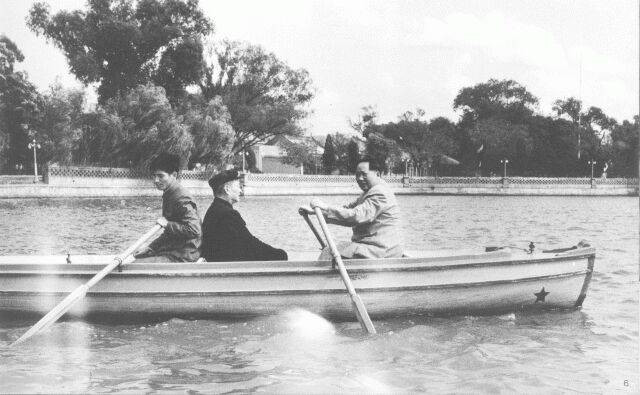Reader’s response to the Call for the release of detainees in Cuba
Cuba and the end of third worldism?

In the heyday of third-worldism back in 1972, the American Fidelista and Maoist Paul Sweezy, editor of Monthly Review, wrote that socialist revolution in the third world countries depends on,
the existence or nonexistence in the population of a sizable element capable of playing the role assigned to the proletariat in classical Marxian theory—an element with essentially proletarian attitudes and values even though it may not be the product of a specifically proletarian experience. The history of the last few decades suggests that the most likely way for such a “substitute proletariat” to arise is through prolonged revolutionary warfare involving masses of people. Here men and women of various classes and strata are brought together under conditions contrasting sharply with their normal ways of life. They learn the value, indeed the necessity for survival, of discipline, organization, solidarity, cooperation, struggle. Culturally, politically, and even technologically they are raised to a new and higher level. They are, in a word, molded into a revolutionary force which has enormous significance not only for the overthrow of the old system but also for the building of the new.
Paul Sweezy and Charles Bettelheim, On The Transition to Socialism (Monthly Review Press, 1971), 52-53
In Sweezy’s day, this thesis was usually advanced in conjunction with the idea that the industrial working class, especially in the advanced countries, had been “bought off’’ and displaced as a revolutionary force in the contemporary world. See Paul Sweezy, “The Proletariat in Today’s World,” Tricontinental, no. 9 (November-December 1968); and Malcolm Caldwell, “The Revolutionary Role of the Peasants,” International Socialism, no. 41 (December 1969/January 1970).
Half a century on, what the history of the last few decades actually shows is how tragically wrong Paul Sweezy was, and how right Marx was in insisting in the Communist Manifesto (1848) and The Civil War in France (1871) that there is no substitute for working class self-emancipation. From China to Cuba, Vietnam to Nicaragua, every single revolution led by such “substitute proletariats” installed new class societies—run by “savior-dictators” of self-appointed would-be do-gooders.
In China, North Korea, Vietnam, Laos and Cambodia they installed Stalinist bureaucratic-collectivist class societies modeled on Stalin’s USSR. In Algeria, Mozambique, Angola, Zimbabwe, and Guinea Bissau they installed one-party state-capitalist regimes. In Cuba, though Fidel Castro, Che Guevara, and their fellow guerrillas were not revolutionary Stalinists to begin with—unlike Mao Zedong, Kim Il-sung, or Ho Chi Min—after the imposition of the US blockade they turned to the USSR for support and soon adopted all the trappings of a one-party Stalinist state.
Yes, the Stalinist substitutionist revolutionaries “overthrew the old systems.” Mao’s revolution, which was the most radical and served as the template for all the subsequent third world revolutions, expelled the last of the imperialists, overthrew the quasi-feudal landed classes and their warlord governments, united the country, abolished private property in the means of production, nationalized the economy, liberated women (to a limited extent), and initiated industrialization. But far from “liberating” the working class (or even the peasantry), the substitutionists installed a brutal totalitarian police state that virtually imprisoned the entire population—like North Korea today, which modeled itself on Mao’s China—and imposed the dictatorship of a Stalinist party that claimed a monopoly of all “correct ideas.”

After the “Great Helmsman” (Mao) spent nearly three decades steering the ship of China from one catastrophic wreck to another, killing tens of millions of the very peasants who fought to put him in power in the first place, Deng Xiaoping—one-time proletarian pipe-fitter at the Le Creusot Iron and Steel Plant near Paris, before becoming Political Secretary of Mao’s revolutionary army—offered up a new correct idea: capitalism. So much for the “proletarian attitudes and values” of the substitute proletariat. By contrast, state capitalist revolutionists like Robert Mugabe didn’t bother with all that. He just seized political power, kicked out the whites, and kept capitalism, which he looted to his dying day, a pattern that Daniel Ortega is striving to replicate today.
For all their years of guerrilla war “plain living and hard struggle,” nowhere did a single “substitute proletariat” install any kind of workers’ government or even any kind of political democracy. Decades of politically naïve and/or politically corrupt third-worldist leftist apologetics for those new class societies have only served to discredit the very idea of socialism in the eyes of workers everywhere. It is past time to bury Maoism, bury Fidelismo, bury third-worldist illusions in “substitute proletariats,” and reassert the primacy of the working class and the indispensability of mass democracy.
Categories
We want to hear what you think. Contact us at editors@tempestmag.org. And if you've enjoyed what you've read, please consider donating to support our work:
DonateRichard Smith View All
Richard Smith is author of China’s Engine of Environmental Collapse (Pluto Press, 2020) and Green Capitalism: The God That Failed (WEA Books, 2015).
